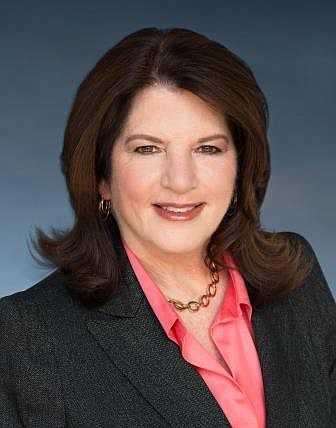
The Downtown Investment Authority is staffing up.
In June, the DIA announced it will fill the position of redevelopment coordinator to replace longtime city employee Jim Klement, who retired in May.
It will advertise soon for two vacant positions that have gone unfilled for nearly nine months.
The DIA administrative staff has been operating with three people since Klement’s retirement — CEO Lori Boyer, Operations Manager Guy Parola and Executive Administrative Assistant Karen Underwood.
In addition to the redevelopment coordinator, DIA is posting jobs for a communications coordinator and a director of Downtown real estate development.
The authority oversees development standards in Downtown’s Northbank and Southbank Community Redevelopment Areas.
It also implements and monitors compliance of city-backed economic development incentives and compliance with design standards in the CRAs and it markets Downtown Jacksonville.
Boyer, who joined DIA on July 1 after serving two terms on City Council, said the three positions were in former CEO Aundra Wallace’s 2018-19 budget and approved by the DIA board but not filled. Wallace left the DIA in October 2018.
Following the board’s vote May 15 to hire Boyer as CEO, she said reorganizing staff and filling vacant positions would be her first priority.
The DIA board eliminated vacant planner and market analyst positions when it approved its 2019-20 administrative budgets and created the communications and real estate director positions.
Then-interim CEO Brian Hughes — now the city’s chief administrative officer — told board members that the budget provided leeway for the new CEO to examine staffing and create a team.
Boyer said the open positions will be “revamped” to fit the authority’s needs.
The redevelopment coordinator will advise the Downtown Development Review Board, which oversees code compliance, design standards and redevelopment programs in the CRAs.
Boyer said she’s looking for someone with expertise in urban design and landscape architecture or who worked in construction management. The position will report to Parola.
She wants the coordinator to have the ability to offer design suggestions to developers, a role that now belongs to Parola.
“Guy (Parola) is doing everything. At the moment he’s doing all of this, and that shouldn’t be,” Boyer said.
The other two positions are intended to better manage workflow at the DIA.
The director of Downtown real estate development will replace Tom Daly, who moved to the city’s Neighborhoods Department this year. The position will serve as an accountant, responsible for financial analysis, and could act as a surrogate for Boyer in negotiations with business leaders.
The real estate director also could be a spokesperson for DIA in certain circumstances. It could be one way Boyer overcomes an opinion in April by the Florida Commission on Ethics that a former council member is not allowed to represent a group or the city’s interests before the council for two years following the council term.
The DIA board discussed the opinion’s impact during the CEO hiring process. Boyer said if she is required to directly approach council, she prefers contracting a lobbyist or sending a more experienced staff member in her first two years.
Mayor Lenny Curry’s proposed 2019-20 general fund budget allocates $731,178 to the DIA for salaries and employer-provided benefits. That’s up 10.6% from $661,101 in 2018-19.
The total DIA budget is $2.16 million, up 25% from about $1.72 million in the current year.
DIA’s salaries and final budget are subject to council approval.
Boyer was offered an annual salary of $180,000 plus employer-paid benefits as part of her employment contract approved by the board June 19 and effective July 1.
The salaries of the three incoming positions are not set, DIA officials said Wednesday.
The money for the budget boost is coming from the CRA funds. According to Curry and Hughes, both the Northbank and Southbank CRAs have positive cash flow for the first time.
City Hall wants to earmark $1.25 million from the city’s general fund for the DIA in 2019-20. An estimated additional $909,863 will come from the CRAs, offsetting the budget increase.
In 2018-19, the CRAs covered only $48,003 of the DIA’s overall $1.718 million administrative expenses.